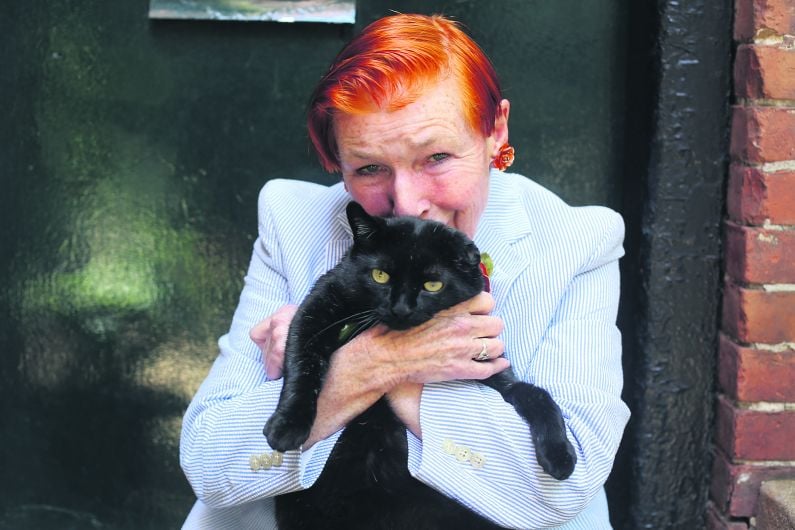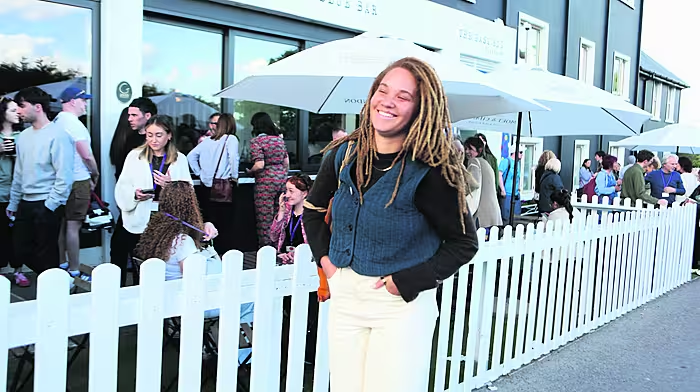Ever thought about writing that book? Now could be the time. We asked five established writers who know the ups and downs of word-smithing to give us their best tips on how to get started
DO you care about language and do you care passionately about the art and craft of telling stories on paper?
That is the direct criteria that the novelist Stephen King uses in the opening of his stupendous book On Writing – A Memoir of the Craft.
 Stephen King.
Stephen King.
The book is part biography, part collection of tips for aspiring writers, and it is the most recommended book bar none – and that includes other successful authors who agree it is a ‘must read.’
One of the most enduring passages in the book is when Stephen’s mother rewards him for the first four stories he, as a kid, produced.
‘Four stories. A quarter apiece. That was the first buck I made in this business,’ he wrote.
Writing a book is not something for the tyranny of a ‘to do’ list: it should be for those – as Stephen King said – who love language to the point when they can almost taste it, and feel compelled to put those words on paper.
Cork County Council – which has been to the fore in offering a lot of innovative Covid-19 supports – have come up with an online writing workshop for those looking to develop their writing skills, and applications are now being accepted for the digital workshops, which are due to begin on April 29th.
Author Denyse Woods, who is also the local authority’s writer-in-residence, has agreed to share some of her thoughts on using the lockdown to write the elusive novel.
 Denyse Woods.
Denyse Woods.
‘Very few novels are written in a short period of time!’ she said. Novels can take years, so even this long period of isolation might only result in a few chapters, and that’s okay - it’s a start.
‘One of the hardest things about writing is starting, and getting those first few pages written is in itself a huge achievement. In fact, I would recommend starting with a short story, or a bit of flash fiction, or a short of memoir.
‘These will flex writing skills and familiarise new writers with the process of taking a piece all the way through from beginning to end.
‘Those determined to finally get ‘that novel’ written whilst stuck at home can take comfort from Hemingway. Legend has it that when he arrived in Key West from Cuba in 1928, with his second wife, Pauline Pfeiffer, he was expecting to collect a car so they could drive up to mainland Florida. But the car didn’t arrive for three weeks. Ernest used the time well. Locked down, as we are now, and unable to get off that very small island, he wrote most of A Farewell to Arms in just over two weeks.’
Denyse Woods is the former director of the West Cork Literary Festival in Bantry, which sadly is on hiatus.
One of the regular contributors to that festival is Carol Drinkwater – Helen Herriot in All Creatures Great and Small – and she also agreed to share her thoughts with The Southern Star’s readers.
 Carol Drinkwater
Carol Drinkwater
‘As I write,’ she said, ‘I am alone looking out on this glorious south of France morning about to begin a new novel. For those who usually have day jobs and have dreamed of writing, this lockdown could well be your opportunity.
‘If you haven’t yet put pen to paper, begin by jotting down your thoughts on the book-to-be. What is the thread for the story? Do you have any characters in your head? Begin to describe them. How they look, what their goals are, what they have to do to achieve those goals. Put two characters together with opposing goals/wants and – bingo – you already have the seeds for a scene, a drama.
‘Use this time to play with ideas, don’t force the flow. Use your pen and paper or computer as an empty canvas, scribble down thoughts, ideas, colours, observations.
‘The mind is overflowing with emotions, thoughts, memories. Let your pen begin to record them and you are already on your way. Good luck, keep safe, stay well. Carol.’
Another author who will be familiar to readers from the Literary Festival is Alice Carey, who has, since 1995, lived in West Cork for part of each year on the Sheep’s Head Peninsula.
Now, however, she is hunkered down in ‘grim Manhattan’ which she says has taken on ‘the appearance of a ghost town in these hard times.’
Alice said: ‘Writing, like playing a musical instrument takes practice. And yet, the idea you have a book in you is always valid. What you need to do is practise on how to get it out of your imaginative head, and onto the printed page.
‘Consider writing a daily journal about yourself – your life, parents, siblings, partner, cat, dog anything that shows you as you. This will help you form your own personal belief that writing is something you actually create. Not something that pops into your head and voila! It suddenly becomes a book!
‘Practise your writing religiously by doing this for several weeks. Sometimes even a few sentences will do. Just do it! Then read everything out loud! Do not read in your head. That never works. You must hear your words in your own voice to get a hint of what you are trying to get at. See what you think and be honest.
‘Separate the wheat from the chaff. Work on it. Set a time and a place to work every day. Do it as work. Writing is. A fledgling book may, or may not, appear. But (and this is a big but) … you did it! Be proud of yourself and start all over again if it doesn’t please you.’
Schull-based writer, ER Murray also offered us her perspective. She said: ‘Writing is all about practice, so making time to write regularly is better than waiting for long chunks of writing time only now and again.
 ER Murray
ER Murray
‘Try and make writing part of your daily routine if you can, so it becomes a habit – that way, it gets easier to sit at the desk. Writing a novel is not about waiting for inspiration, it’s about being dedicated and getting words on the page.
‘Don’t worry about end goals like publishing. Concentrate on completing your first draft – this is when the real work starts. And the best accompaniment to your writing is reading. All writers should read as widely and hungrily as possible, to improve their knowledge and skills.’
Author Sara Baume, who lives outside Skibbereen, shared this advice: ‘For anyone thinking of endeavouring upon a writing project during this strange period, my advice would be to think long and hard about your subject. If it seems slightly peculiar or excessively specific, then that probably means you’re onto something!
 Sarah Baume
Sarah Baume
‘If you want to write about your own life, try to focus on the details. Every life, no matter how apparently ordinary, has the potential to be complicated and fascinating if you come at it from the right angle.
‘Write the first draft fast. Sketch out the story. Cut straight to the heart of the matter. Go back to it every day, even if all you can spare is ten minutes.’
For the last four years, Sara and her partner have lived in West Cork. She said: ‘We feel incredibly lucky, at the moment, to be close to the sea. I’ve had a lot of reading events cancelled for the summer, but I’m always very happy to work quietly from home.’







